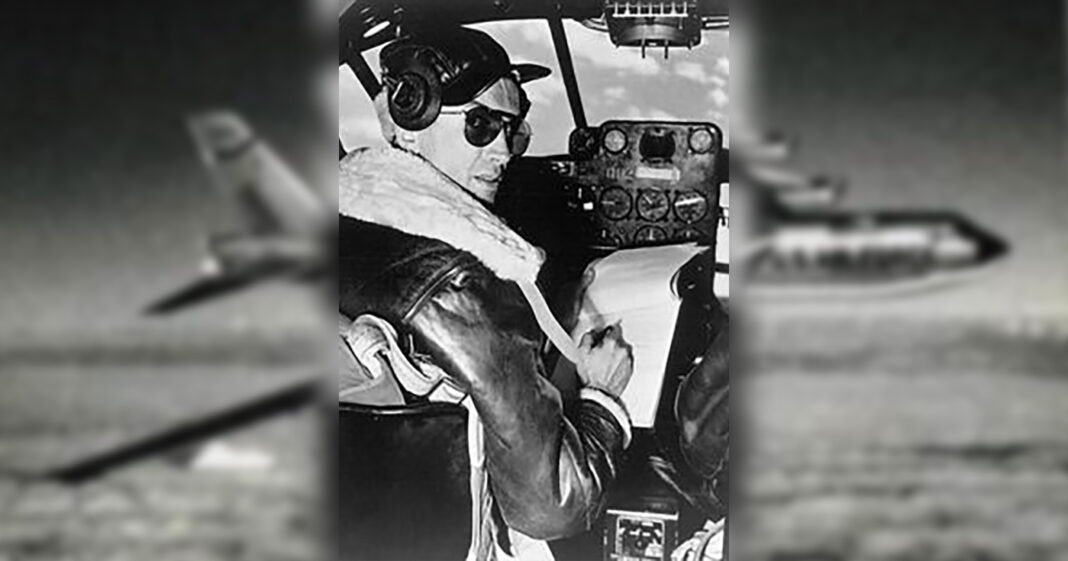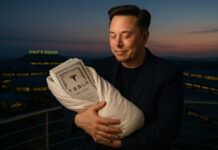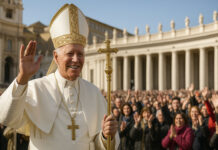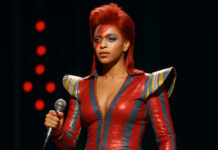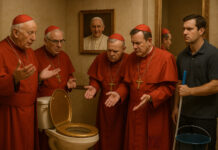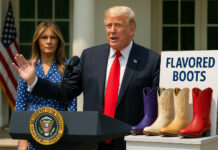New York, NY — A dusty box of previously undiscovered photographs has been unearthed in the basement of what was once a secret Stanley Kubrick film archive, rumored to have been curated by the famous director. Among the cobwebs and moth-eaten reels, a series of costume test photos have set the cinema world ablaze with speculation and uproarious disbelief.
The photos in question? None other than Hunter S. Thompson, the notorious scribe of Fear and Loathing in Las Vegas, donned full military regalia, captaining an atomic bomber with a wild glint in his eye that could outshine any Cold War paranoia. Before Slim Pickens rode that bomb to cinematic history in Dr. Strangelove, Thompson was nearly the King, Major T. J. “King” Kong.
Riding the Atomic Bomb: The Unseen Hysteria of Hunter S. Thompson, due out this week from Penguin Books, explores this undiscovered chapter of Thompson’s life, shedding light on the man’s lesser-known patriotic fervor and his complex relationship with the absurdities of war. Montgomery Archibald Kingsley, an author of the New York Times bestseller Dancing with Shadows: The Unseen Moves of Fred Astaire and 2018’s controversial The Electric Kool-Aid Acid Test Pilot: Neil Armstrong’s Cosmic Journey, is known for his ability to find gold in the darkest corners of American history, takes us on a rollicking ride through what could have been.
Kingsley suggests that Thompson’s audition was not merely an attempt to break into acting but a subversive ploy to undermine the glorification of war. Imagine the creator of gonzo journalism, a man who lived on the edge of sanity and substance, delivering Kong’s lines with a deranged fervor only he could muster. The book depicts Kubrick’s secret desire to cast a real-life madman to blur the lines between reality and satire further.
However, as Kingsley notes, the world was perhaps not ready for such a jarring juxtaposition. The Pentagon might have declared a state of emergency, and the film’s release could have coincided with actual fallout shelters being stocked anew. In a chapter aptly titled “Too Gonzo for the Bomb,” the author speculates the catastrophic cultural ripple effects had Thompson landed the role.

Instead of being a satirical sideswipe, the Pentagon scenes could have turned into a full-frontal assault on the military-industrial complex, with Thompson leading the charge, riding the bomb not just as an actor but as a symbol of the madness the world had succumbed to. Kingsley imagines a scenario where Thompson, infused with his brand of patriotic insanity, transforms Major Kong into a figure more terrifying and absurd than Kubrick could have ever hoped for.
In the expanded narrative of Riding the Atomic Bomb, Kingsley unearths connections between the erratic escapades documented in Fear and Loathing and the bizarre, lost audition for Dr. Strangelove.
Kingsley highlights Thompson’s peculiar obsession with “strange love” throughout the Las Vegas narrative. Initially dismissed as mere ramblings or drug-induced paranoia, Kingsley posits that these references were, in fact, deliberate Easter eggs, a cryptic nod to the role of Major T.J. “King” Kong that Thompson so nearly captured. The phrase, scattered like breadcrumbs throughout the text, is a subliminal thread, leading the astute reader to the surreal truth of Thompson’s nearly altered fate.
Kingsley also draws attention to an oft-overlooked passage where Thompson describes an encounter with a hallucinatory figure he calls “the Warhead,” a man resembling General Jack D. Ripper from “Dr. Strangelove.” Kingsley suggests that this was no coincidence but a carefully coded confession of Thompson’s brush with cinematic history.
History took a different path, but “Riding the Atomic Bomb” offers a hilarious, albeit pointed, critique of war culture, celebrity, and the fine line between genius and insanity. It’s a what-if tale that only the likes of Thompson could inspire and only a town as steeped in lore as Nevada City could uncover, proving once again that truth is stranger than fiction – especially when nuclear bombs and literary outlaws are involved.
Ultimately, Thompson’s audition failed, but it’s not a footnote but a bold statement, a missed opportunity to shake the public out of its complacent acceptance of Cold War rhetoric. Kingsley’s work reminds us that sometimes the bomb you need to fear most is the one you’re riding, knowingly or not, into the sunset of American exceptionalism.

